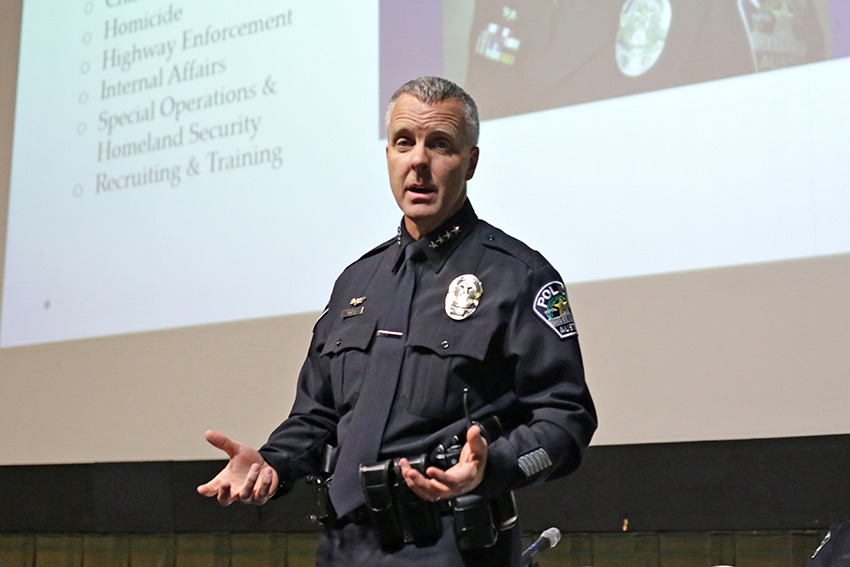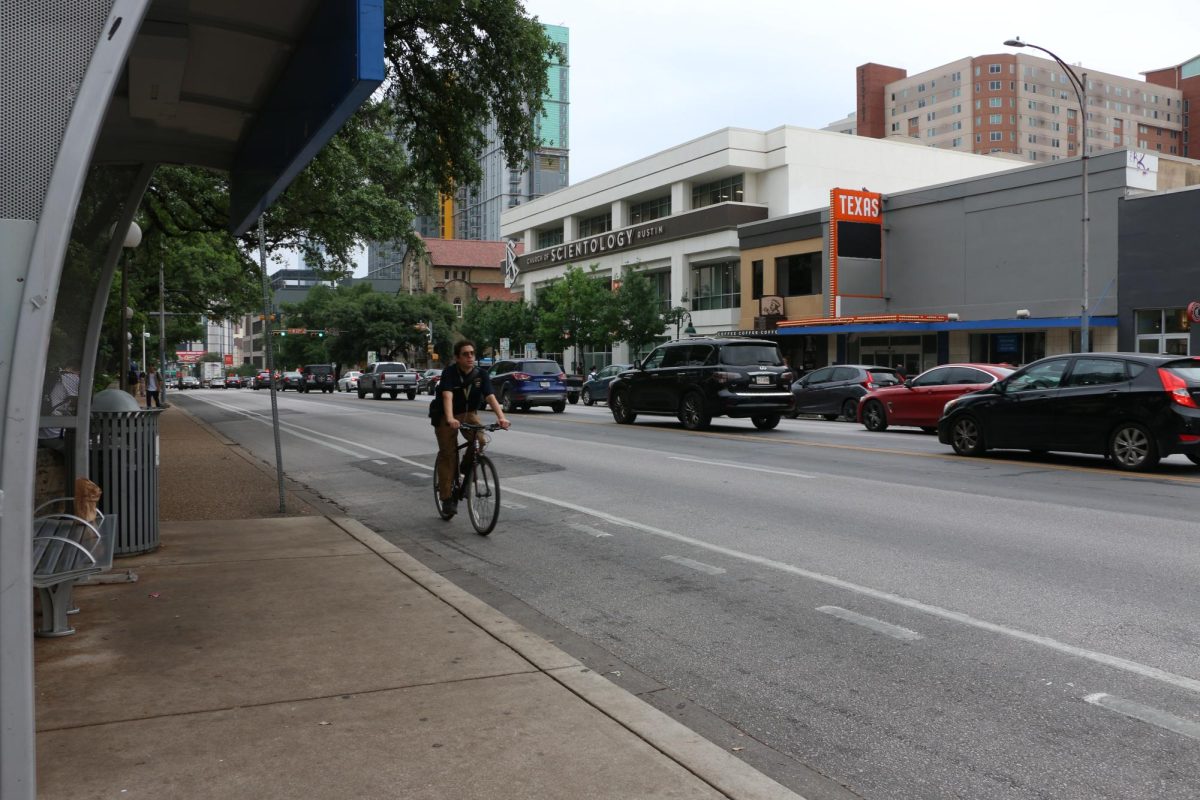In the aftermath of its lab’s closure, the Austin Police Department will now send a majority of its faulty DNA cases to the University of North Texas Health Science Center to determine if retesting must be done.
On Thursday, Austin City Council approved a contract to allow the center to review and analyze DNA cases that were tested by APD’s lab before it shut down in June 2016. Prior to the shutdown, the Texas Forensic Science Commission found APD’s DNA testing procedures were outdated or improper, causing already tested cases to be reanalyzed and creating a backlog.
“The University of North Texas is going to look at the data from those cases and interpret them to see if they’ve been interpreted properly,” APD Forensic Unit Commander Michael Eveleth said.
Eveleth said a group of agencies, including APD, the Travis County District Attorney’s Office, the Office of Travis County Judge Sarah Eckhardt and the Capital Area Private Defenders Service, will see if that evidence was significant or “material to prosecutions.” UNT genetics professor Bruce Budowle will then look at the DNA data and determine if each case was properly tested. If it was not, it will be sent to another lab for retesting.
The center has already analyzed a small number of cases before City Council approved the contract, and once the group of agencies is able to form a single coalition, they can better analyze which evidence to send to the center.
The closure of APD’s lab created a backlog of cases waiting to be tested, including those involving criminal cases such as murder and sexual assault. Austin’s SAFE Alliance is a nonprofit that has a 24-hour clinic that administers free sexual assault kits, some of which were backlogged.
Aja Gair, senior director of regional services for SAFE, wrote in an email that as of June 1, SAFE had 1,971 untested kits, and at the beginning of August, that amount had dropped to 1,817.
“This is the first time in recent memory we’ve seen a reduction in the backlog,” Gair said. “While things have taken a turn for the better, it’s still a significant problem considering that the wait times are at least several months long.”
Gair said that any partnerships between APD and other labs to test the sexual assault kits would give victims a peace of mind.
“I believe that any agreement that includes a provision to test a certain number of sexual assault kits, rather than just any DNA, would be beneficial to the community and survivors,” Gair said.
Eveleth said a majority of cases to be re-assessed are sexual assault cases because DNA from a victim, a suspect and an innocent person may be intermixed. Eveleth said Budowle will then interpret if the DNA assigned to those involved was correct.
“In some cases, say, the victim has a partner from before and there’s a sexual assault — and so there are multiple mixtures in the DNA,” Eveleth said. “So there’s a lot of interpretation involved in analyzing that profile.”
In January, APD partnered with Signature Science Labs, a limited liability company which provides consulting for various scientific fields and is taking in 30 cases monthly. Shortly after the lab’s closure, APD started sending about 20 cases per month to the Department of Public Safety, and the department also partnered with the Dallas County’s Southwestern Institute of Forensic Sciences last November.





















